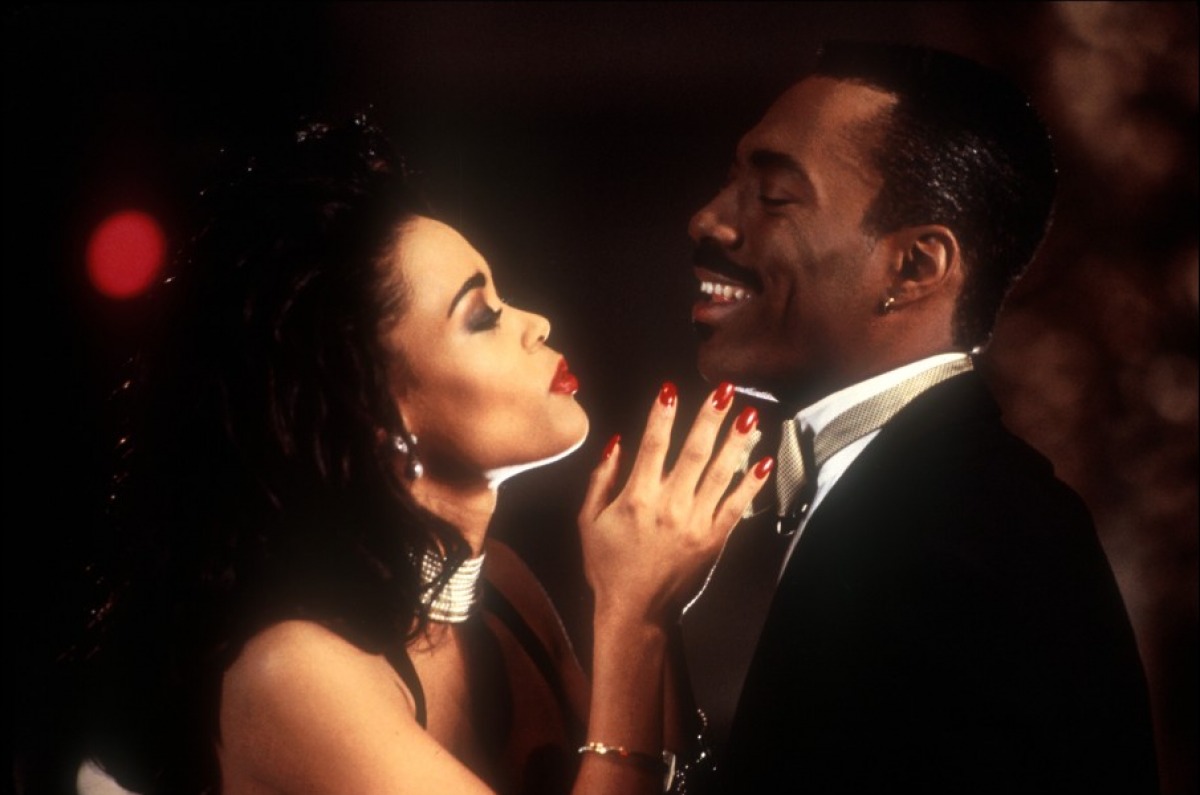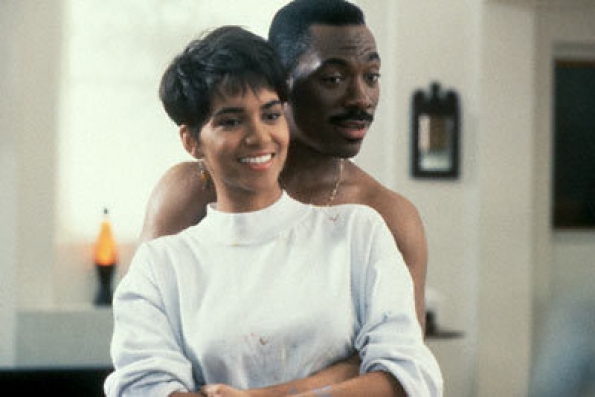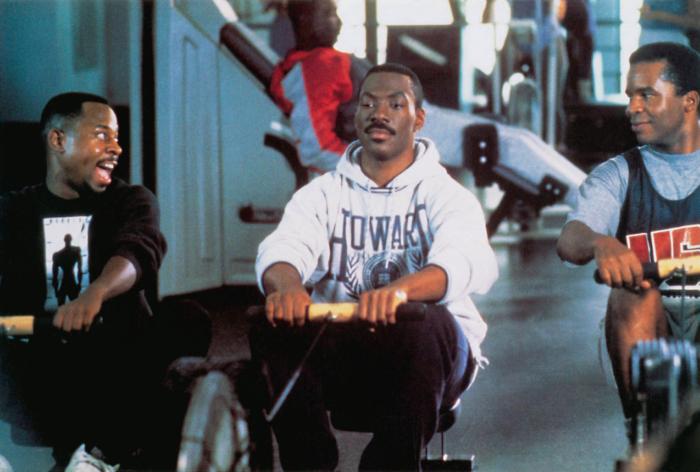My Selfie Project on Instagram
 The Selfie Project is a social media experiment I started on Instagram in order to communicate out of a need to (be) love(d). The project's mission is inspired by the Abbot, a character in Carl Sagan's novel Contact.
The Selfie Project is a social media experiment I started on Instagram in order to communicate out of a need to (be) love(d). The project's mission is inspired by the Abbot, a character in Carl Sagan's novel Contact.
The Abbot asks, "But why do we communicate? [...] Why do we wish to exchange information?" The Abbot concludes, "I believe that we communicate out of love or compassion."
The selfie (a picture taken of yourself with the intent to upload to social media) has become a cultural phenomenon and social practice that reflects a desire to author ourselves while living and being in an era of complicated and intrusive privacy and surveillance practices, all while the body and self image are perpetually scrutinized.
Does narcissism play a role? Perhaps. But that's not my focus here.
Instead, I understand that through the selfie we seek to reach out to others, confront our mortality through digital reflections, and expose pieces of who we believe we are through the mobile self portrait. The selfie becomes a communicative means through which we articulate identity, emotions, and desire. And yes, the selfie, as practice, can be an exercise of self-deprecation.
With the Selfie Project, I attempt to show that there is more to the selfie than the self. Accompanied by poetry, song lyrics and thoughts, there's you.
This is my love story.
Request to follow me on Instagram @Friday025
#TheSelfieProject
Court-involved youth and social meanings of mobile phones
photo by Tara L. Conley
“The mobile is the glue that holds together various nodes in these social networks: it serves as the predominant personal tool for the coordination of everyday life, for updating oneself on social relations, and for the collective sharing of experiences. It is therefore the mediator of meanings and emotions that may be extremely important in the ongoing formation of young people’s identities” (Stald; 2008, pg. 161).
"Dependency Court involved youth rarely have access to a computer or cell phone, and even when they do, it is often only for a short period of time" (Peterson; 2010, pg. 7).
The following is a conversation about cell phones between me and young people involved in foster care and juvenile justice systems. This excerpt is part of ongoing research. Please do not republish.
Tara: I have a question. You all have cell phones, right? And they’re reliable? Do young people [who are court-involved] have cell phones? Do they have data plans? Do they have Smartphones? Do they have flip phones?
Male 1: Some of them have flip phones. Some of them have Smartphones. There are some of them who are scared to pull out their flip phones because...
Female 1: They may get picked on.
Male 1: Exactly!
Tara: They might what?
Female 1: Picked on.
Tara: Picked on? Really?
Male 1: Yes!
Tara: Because they have a flip phone and not a Smartphone?
Male 1: Yes!
Tara: That’s horrible.
Male 1: Kids are vindictive.
Male 2: If you still got a Blackberry you might get picked on.
Female 1: I have a Blackberry. How does that make me less of a person? Because I don’t have an upgraded phone like you?
Male 1: I like it! My Blackberry. I like it more because it’s more of a useful phone than the iPhone and the Galaxy.
Female 1: But you know what? I also think it’s the media that portrays it that way. Like we need it.
Male 1: Of course.
Female 1: It’s like water. Our tap water gets checked everyday to make sure it’s safe for our bodies, but [bottled water] might not get checked as much, but they make it seem like we need it more.
Male 1: But see, if you want to talk about that, that’s on a whole other level. That’s propaganda!
Female 1: But they make it seem like we need this special water.
Male 1: Yeah! They do that with everything! It’s how the government makes money off of the foolish.
Male 2: But then there’s a lot of girls who be like, ‘Oh, if you don’t have an iPhone 5, you’re not popular.’
[Laughing]
Male 1: Yup.
Male 2: The kids get into stuff like that you know. So, I mean there are some kids who don’t have a phone...
Tara: You have an iPhone?
Male 1: Yeah, the 5.
Tara: You have an iPhone?
Female 2: No, the Galaxy Exhibit.
Tara: But they’re all Smartphones?
Male 1, Male 2, Female 1: Yeah.
Male 1: Most of the time, look, it’s hard as hell right now to find a flip phone.
[Laughing]
Male 1: I’m not even going to lie, if you got a flip phone, I’m probably gonna laugh.
[Laughing]
References
Peterson, S. B. (2010). Dependency court and mentoring: The referral stage. Office of Juvenile Justice and Delinquency Prevention.
Stald, G. (2008). Mobile identity: Youth, identity, and mobile communication media. Youth, Identity, and Digital Media. Edited by David Buckingham. The John D. and Catherine T. MacArthur Foundation Series on Digital Media and Learning. pp. 143–164. Cambridge, MA: The MIT Press.
Transcribing data on a Sunday afternoon
Excerpt of transcribed audio from the first TXT CONNECT youth advisory board meeting on March 12, 2013:
What we’re doing is building a communication platform for these young people. It’s not just mobile text messaging. It’s Facebook--and another thing I was thinking with the Facebook page is to do exactly what you guys are saying and suggesting, which is to build this community online where young people can feel like ‘Okay, I know exactly where I need to go to get information.’ The platform that we’re trying to build--the purpose of it is to connect all of these resources together for young people. It’s like a one-stop shop for [court-involved youth] who want to get information about A, B, or C. They know they can go to whatever it is that we’re calling it.
Happy Birthday Daddy
James J. Conley April 30, 1930 - December 17, 2008
James J. Conley, who would have turned 83-years-old today; the man who taught me what it means to sacrifice integrity, pride, work, and life for love. The only man who has ever loved me unconditionally, as in loving wholly without perimeters or boundaries determined by external circumstance or ego. My best friend. The one who was always there to watch me run against the boys, reminding me, "you're better than them. Don't you ever forget that". The one who came to watch me play basketball as an adult, even as he was confined to a wheelchair, still yelling from the sidelines, "you still got it, kiddo!". The one who loved my beautiful mother during the 80s when white men weren't supposed to love Black women, all the way up until his last breath. My father. My hero. My joy. My pain. The only man for which I would ever give my life. Happy birthday, daddy. I love you.
The Boomerang Effect (and why Jacqueline's story is important)
 This post first appeared on The Loop 21 three years ago (The Loop 21 has since deleted the article...boo!). My article prompted a thoughtful response from director, Reginald Hudlin, which was also deleted by The Loop 21 (ugh!). Anyhoo, here's my take on one of my favorite movies of all time, Boomerang, and why I think Jacqueline's story is important.
This post first appeared on The Loop 21 three years ago (The Loop 21 has since deleted the article...boo!). My article prompted a thoughtful response from director, Reginald Hudlin, which was also deleted by The Loop 21 (ugh!). Anyhoo, here's my take on one of my favorite movies of all time, Boomerang, and why I think Jacqueline's story is important.
It’s hard to believe that eighteen years ago audiences around the country first laughed out loud at the box office hit film Boomerang (1992). The movie, arguably one of Eddie Murphy’s best films, introduced us to Bony T (Chris Rock), the incomparable antics of Strange (Grace Jones), and blessed us with Mr. Jackson’s (John Witherspoon) now legendary phrase, “Bang! Bang! Bang!” Without a doubt, Boomerang is one of the best American comedies of the twentieth century.
I’ve watched Boomerang at least several dozen times throughout my life (I was eleven years old when the film was first released). Each time I watch the film, I gather something new, whether it be one of Tyler’s (Martin Lawrence) pro-black conspiracy theories or the unintended comical reactions of an extra on the exercise machine in the background.
However, as I’ve gotten older, I’ve watch the movie with a different lens--a more grown up one, if you will. Needless to say, the more I watch Boomerang the more I notice Robin Givens’ character, Jacqueline, as the quintessential villain presumably because she can manage a career and a sex life.
Let me explain.
I've always been more interested in Jacqueline, a highly successful and sexual Black woman, than Marcus, the predictable dunce who eventually learns a lesson about love. My main argument is that while both Marcus and Jacqueline are flawed, it only seems that Marcus gets rewarded in the end by living a happy life with Angela (Halle Berry) and Jacqueline gets vilified, never seen or heard from again. The thematic conclusion presented in the plot eerily reflects real world assumptions about sex and romantic relationships.
(Note: The point of this article is not to set up useless binaries between heterosexual men and women, but to explore how the relationships presented in Boomerang might be a reflection of society's problem with successful, independent, sexual, and loving women.)
I’ll start with the counter arguments then explain the problems with each as it relates to a larger discussion of gender and sexuality in the context of romantic relationships.
Counterargument #1: It’s not about Jacqueline being able to manage a career and sex life, it’s about my man Marcus being done wrong!
In fact the story is also about Jacqueline, though the Hudlin Brothers and Eddie Murphy chose to highlight Marcus as the central character who can learn from love. We never know what happened to Jacqueline after she told Marcus “it’s over” and left hurriedly to catch the cab. We also don’t know what happened to Jacqueline after Marcus left her in the bed upon realizing he loved Angela. Did Jacqueline find another lover, (perhaps a woman?), to fill the void that Marcus left? As the audience, we’re left to assume that Jacqueline 'got what she deserved' because she was cold-hearted (similar to how Marcus was earlier in the movie).
 Interestingly enough (as noted on the DVD audio commentary), “the Executives at Paramount Pictures were nervous about casting Robin Givens in the film because she was disliked by many in the general public due to her past with Mike Tyson.”
Interestingly enough (as noted on the DVD audio commentary), “the Executives at Paramount Pictures were nervous about casting Robin Givens in the film because she was disliked by many in the general public due to her past with Mike Tyson.”
Hudlin continues to say however, “that actually made [Givens] perfect for the role, that she was this formidable person, and a match for Eddie Murphy, who also had an increpid reputation as a ladies' man. So, I wanted the audience to feel like this would be a fair fight.”
Mr. Hudlin’s boxing references were not unintentional. Robin Givens was perfect for the role, not simply because she could act, but because of her public battle with ex-lover, Mike Tyson. Essentially Jacqueline’s character, played by a women who in real life was was ostracized publicly for her relationship with a successful Black man, was thought of as a formidable opponent to Eddie Murphy’s character Marcus because she could match wits with him sexually and intellectually.
Robin Givens was the perfect woman to play Jacqueline, the villain, because in real life she was the villain.
The idea of woman as villain, both real and imagined, also speaks to a larger societal issue concerning successful and outspoken women who publicly battle with (what should be) private romantic relationships. Often times these battles involve more than simply a lovers quarrel, but rather serious issues concerning domestic violence and sexual abuse. Whether it be Mike Tyson or Marcus Graham, to suggest that either have been 'done wrong' by a woman seems a bit shortsighted, but nonetheless a predictable response in a patriarchal society that has yet to accept its role in the proliferation of gender biases while minimizing the complexhood of a woman's sexuality within romantic relationships.
Counterargument #2: Jacqueline is karma in the flesh, not a villain.
Women are not personifications of abstract ideas, but rather, we are human beings; the stuff that personification is actually made of. As Hollywood depicts women as karma in the flesh and thereby saviors of men, the reality is that "the over-reliance on 'woman wisdom' leads to lack of accountability on the part of men." In a society that is infatuated with categories, we have to keep in mind that each time we label women and men based on constructions, we also Otherize them, turning the individual into an idea or an object that’s easier to judge, trivialize, and indeed scrutinize.
By accepting Jacqueline as the villain, we also assume that her purpose is to teach Marcus a lesson, and essentially make us feel better about reconciling the guilt of treating someone in our lives wrongly. What about Jacqueline’s autonomy and personhood? Granted she too was flawed, as noted earlier, but can we honestly accept that her flaws only served as means to make Marcus (the man in her life) a better person?
Notably, the scene between Marcus and Angela highlights this issue. When Marcus audaciously tells Angela, “I’m a better person because of you” we understand that Marcus still doesn’t get it (as illustrated when Angela slaps him in the face). Though despite Marcus’ misuse of Angela, he still gets the girl in the end.
 The Importance of Jacqueline’s Story
The Importance of Jacqueline’s Story
Which brings me back to why I’m interested in Jacqueline’s story. Though she’s as flawed as Marcus, she’s also extremely powerful in her own right. Her sexuality, intelligence, and success, though mysterious for the most part, are relatable. It’s unfortunate, however, that her story wasn’t intriguing enough for the writers to make it central to the plot. Though, it may just be a refection of how we haven’t reached the point yet where stories like Jacqueline’s are welcomed in public discourse about romantic relationships. While Steve Harvey tells women and men how to act, some of us are (or will eventually be) brave enough to tell our own stories.
At times, I wish another Boomerang would be produced so I can admire the characters all over again. But as one friend reminded me, "some movies have to be appreciated in our past, never in present."
Indeed.




